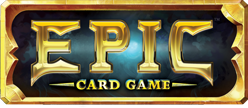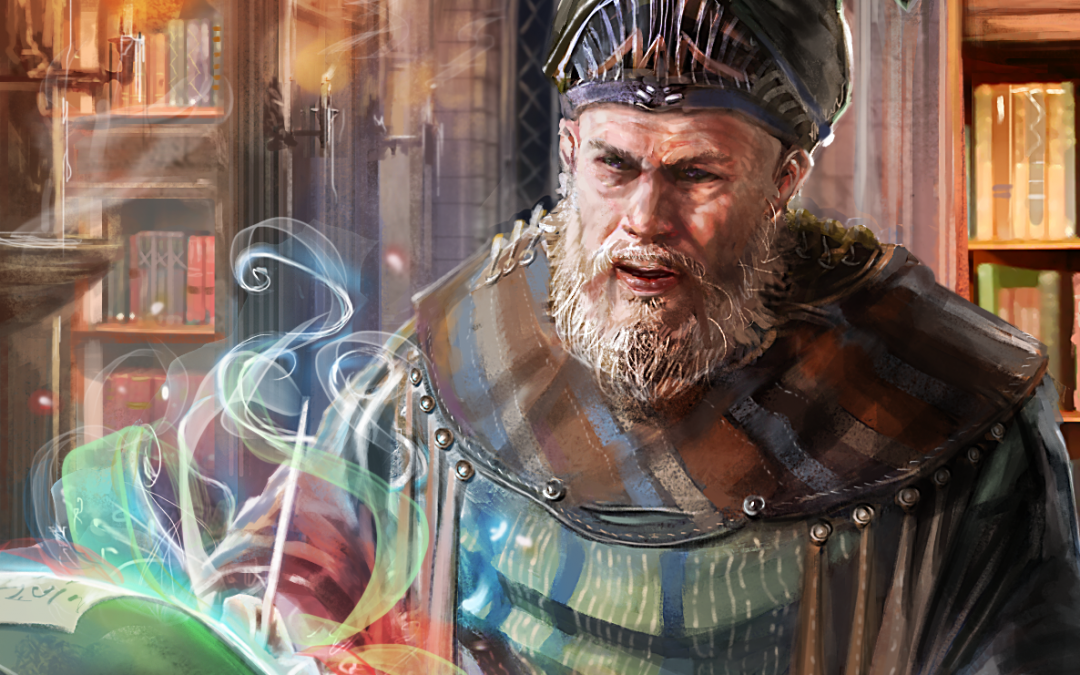The Epic tournament rules have been posted here. For most experienced tournament players, there are no real surprises.
-Shuffle your deck properly
-Don’t cheat
-Don’t be a jerk
-This is what Constructed and Limited are
-Don’t be mean to judges.
And so forth…
Like I say, no real surprises. If you’ve ever played another competitive game, this is more or less the same.
Here’s where we deviate from a lot of games: Penalties.
Epic gives us a few challenges with respect to penalties. The main one being from drawing cards when you’re not supposed to. Obviously this is a huge deal in most card games, and Epic, where each card is more broken than the next, is no exception.
Here is what happens when players look at, or draw extra cards (and remember, like most penalties, we have determined that the player is not cheating in these scenarios).
-Illegally Accessing Hidden Information – A player performs an action and by this accesses information that should be hidden. If the fix is easy, the judge should issue a warning. If the fix is disruptive and/or impossible, this should be a Major Infraction and a game loss is appropriate.
Example: A player picks up the top card of his deck and sees it. The player thought his opponent passed the turn. The judge determines that the deck can be randomized (excluding the non-random portion ie Banished cards), and does so. This should be a Minor Infraction.
Example: A player sees that his opponent is playing certain constructed cards, and deduces that they are playing a specific deck type. The player then looks at a decklist posted online to determine what is likely in their opponent’s deck. This is a Major Infraction, since it cannot be undone.
Note that this is the only time that a deck is shuffled after a game has started. Banished cards should not be shuffled with this solution. If players aren’t sure about the number of cards that were banished, the judge will determine a reasonable number of cards that both players agree on. It’s always better to estimate a little higher. For example, players think that the number of banished cards is 5, but might be 6. The players can agree on 6 cards, and even 7 without really compromising the integrity of the deck. It’s better to go higher than accidentally go lower.
-Illegally Drawing Cards. During the game, players that draw cards they were not entitled to draw gain a significant advantage. Players are considered to have illegally drawn a card or cards as long as the card(s) have entered their hand, and can not be identified as the drawn cards. Exceptions may be made if (a), the hand zone had zero cards in it before the extra cards were drawn, (b), the contents of the hand were known to both players (eg, every other card in a player’s hand had been previously revealed for Loyalty). In these cases, the penalty should be Illegally Accessing Hidden Information, and that fix should be applied.
If the player drew a card because they thought that their turn had started, see (Illegal Turn Procedure) below.
If, in the opinion of the judge, a player has drawn cards they should not have drawn, the player is given a choice: They may concede the game, or they may reveal their hand to their opponent, and the opponent may choose a number of cards to banish equal to the number of cards that were illegally drawn. If the player chooses to concede, no other penalty is given. If the player opted to have a card banished, a warning should be given.
-Illegal Turn Procedure
Since Epic has no mandatory visible resource management, there is no visual cue that a player is starting their turn until a player draws a card to start their turn. Most illegally drawn cards will be due to this communication error. Exceptions may be made if (a), the hand zone had zero cards in it before the extra cards were drawn, (b), the contents of the hand were known to both players (eg, every other card in a player’s hand had been previously revealed for Loyalty). In these cases, the penalty should be Illegally Accessing Hidden Information, and that fix should be applied.
If, in the opinion of the judge, a player has drawn a card or cards because they incorrectly thought that their turn had started, apply the following fix:
-The player may concede the game, or they may reveal their hand to their opponent, and the opponent may choose a number of cards to banish equal to the number of cards that were illegally drawn OR
-The player may opt to take no further action until their turn starts (ie, the may not play cards, use powers, or block). If the player opts for this last option, the cards remain in their hand, and the player make take no action in the game until their turn starts. (The player may still make decisions when forced by a game effect or rule to do so.)
-If the player chooses the second option (to retain the cards and take no action), they may decide up to the start of their turn to employ the first option (to discard a card of opponent’s choice) and regain the ability to take game actions. If the game state changes in such a way that an illegal amount of cards would have been drawn, apply the fix for Illegally Drawing Cards at the appropriate time OR if the player’s hand becomes relevant to current play, the first option is immediately applied (before other effects).
Example: Robert thinks that Alice passed her turn, and draws 1 card for the start of his turn, and 1 for Muse. Alice calls a judge, and the judge determines that Robert thought his turn had started. Robert opts to retain the cards and take no actions. Alice then plays Juggernaut, and reveals 2 cards for Loyalty. Robert cannot choose to block the Juggernaut with the option he has taken, so he now chooses to have the illegal cards removed. He reveals his hand to Alice, and Alice chooses 2 cards to banish. After the cards are banished, Robert may play cards, use powers, and block.
Example: Robert thinks that Alice passed her turn, and draws 1 card for the start of his turn, and 1 for Muse. Alice calls a judge, and the judge determines that Robert thought his turn had started. Robert opts to retain the cards and take no actions. Alice then plays Banishment and banishes the Muse, then passes. Since Robert would have drawn only one card at the start of his turn, and he has drawn 2 (one for Muse), he has an illegally drawn card in his hand. The judge will apply the fix. Robert reveals his hand to Alice and she chooses a card for him to banish.
Example: Robert thinks that Alice passed her turn, and draws 1 card for the start of his turn. Alice calls a judge, and the judge determines that Robert thought his turn had started. Robert opts to keep the extra card and take no further action. Alice then plays Psionic Assault. Since the contents of Robert’s hand is now relevant, and Robert has one more card that he should have, Robert reveals his hand to Alice and she chooses a card for him to banish. The Psionic Assault is then applied, and Robert will draw a card at the start of his turn.
If the player chooses to concede, no other penalty is given. If the player opted to have a card banished, or to retain their cards, a warning should be given.
So what does this all mean? Drawing extra cards isn’t a game loss (unless you want it to be), and while revealing your hand to an opponent and have them choose your best card to be banished isn’t the greatest feeling, you wouldn’t have to go through it if you didn’t draw extra cards.
We understand that this can happen a lot, but good player communication will solve 99% of the potential problems.
As for Illegal Turn Procedure…that’s very unique for Epic. We don’t have a resource reset mechanic that would visually clue an opponent to the fact that you think your turn is starting, and that can cause a few issues. While good communication is still going to solve most of these problems before they start, we also recognise that there’s a real potential for someone to gain an advantage with a deliberately muddled communication.
With this rule, the illegally drawn cards are held, but the player that drew the cards will be able to take no in-game action unless they choose to have the “Illegally Drawn Cards” penalty applied, or if something interacts with their hand, we apply the “Illegally Drawn Cards” penalty.
So if Player A starts their turn early, and Player B says “Wait, I’m not done yet”, Player A holds that card. Player B then plays Cave Troll and passes the turn. No problem, Player A has already drawn their card and we get on with things.
If Player B instead plays a Blitz Champion, Player A might want to play a card from their hand. In this case, Player B will choose a card from their hand to Banish, and then Player A may act.
If Player B instead chose to play Thought Plucker, this now involves Player A’s hand, so Player A will have their opponent Banish a card before resolving Thought Plucker’s ability.
If the Banish option was ever used, Player A would draw at the start of their turn normally. If Player A opted to keep their card and this did not change, they would skip that draw since they already have the card.
Those are the main points on which I wanted to draw people’s attention. Next week is going to be amazing, and I hope to see a bunch of you at Wise Wizard Game Fair!
Ian Taylor
Director of Organized Play
Wise Wizard Games


Recent Comments